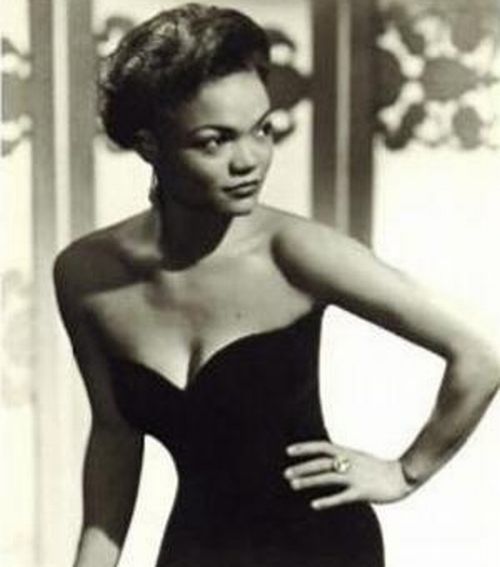“C’est si bon…”
business and economy, computers, everyday glory, food for thought, games, health, history, monkeys!, movies and TV, music, office antics, people, science and technology, stage plays and theatre, travel, Whiskey Tango Foxtrot...?! February 11th, 2011Friday – 11 February 2011
It’s Friday. Granted, it’s my “on” Friday, but it’s still the end of the work week.
Last night, SaraRules and I attended a performance of Never Fight a Shark in Water, a one-man play based on the experiences of Gregory Bright, a man who served 271/2 years in prison for a second-degree murder charge that he didn’t commit. The play, starring Charles Holt, gave a time-compressed view of Mr. Bright’s ordeal, from his arrest to his emancipation. Mr. Holt gave a very powerful and emotional performance… despite what had to be one of the worst audiences that I’ve been part of:
- People wandered in, not quietly, ten to fifteen minutes after the play had started;
- One woman’s daughter was restless – and very vocal about it – throughout the performance;
- One man shouted down at Mr. Holt not smoke; he lit and took two or three drags off two (2) cigarettes over the course of the two-hour performance, both of which were extinguished within a minute or two of lighting them. The smoking of both cigarettes was integral to each part of the story. To his credit, Mr. Holt queried the audience and offered to not smoke – the audience response was overwhelmingly in favor of continuing.
- People got up, leaving and returning to the theatre, mid-performance… again, not quietly.
After the performance, there was a brief Q&A panel session, led by KUER’s Jennifer Napier-Pierce, with Gregory Bright, Charles Holt and a professor whose name eludes me. There were some rather good questions posed by the audience, including:
- Q: How long did it take for you to let go of your anger?
A: “Five or six years.” - Q: You taught yourself to read while in prison and spent so much time reading legal documents to help in securing your freedom; do you read, now, just for enjoyment?
A: “When I learned to read, I read everything: George Orwell… Plato… comic books. Reading was such a great thing! I still read… I just don’t have as much time to do it.”
Mr. Bright was very candid and open in his responses. Even when asked about his former love, who – after 23 years of visits – told him that she’d married someone else, he said that she had been a major force in his life and that she remains a very good friend today.
In all, it was a very good way to spend the evening. If you have a chance to catch a performance of Never Fight a Shark in Water, you should do so.
Chew on This: Food for Thought – Black History Month
Today’s personality is Eartha Kitt:
Eartha Mae Kitt was an American actress, singer and cabaret star. She was perhaps best known for her highly distinctive singing style and her 1953 hit Christmas song “Santa Baby”.
Kitt began her career as a member of the Katherine Dunham Company in 1943 and remained a member of the troupe until 1948. A talented singer with a distinctive voice, her hits include “Let’s Do It”, “Champagne Taste”, “C’est si bon”, “Just an Old Fashioned Girl”, “Monotonous”, “Je cherche un homme”, “Love for Sale”, “I’d Rather Be Burned as a Witch”, “Uska Dara”, “Mink, Schmink”, “Under the Bridges of Paris”, and her most recognizable hit, “Santa Baby”, which was released in 1953. Kitt’s unique style was enhanced as she became fluent in the French language during her years performing in Europe.
Throughout the rest of the 1950s and early 1960s, Kitt would record, work in film, television and nightclubs, and return to the Broadway stage in “Mrs. Patterson” during the 1954-55 season, “Shinbone Alley” in 1957, and the short-lived “Jolly’s Progress” in 1959.[9] In 1964, Kitt helped open the Circle Star Theater in San Carlos, California. Also in the 1960s, the television series Batman featured her as Catwoman after Julie Newmar left the role.
In 1968, during the administration of President Lyndon B. Johnson, Kitt encountered a substantial professional setback after she made anti-war statements during a White House luncheon. The public reaction to Kitt’s statements was extreme, both pro and con. Publicly ostracized in the US, she devoted her energies to performances in Europe and Asia.
During that time, cultural references to her grew, including outside the United States, such as the well-known Monty Python sketch “The Cycling Tour”, where an amnesiac believes he is first Clodagh Rodgers, then Trotsky and finally Kitt (while performing to an enthusiastic crowd in Moscow). She returned to New York in a triumphant turn in the Broadway spectacle Timbuktu! (a version of the perennial Kismet set in Africa) in 1978.
Ms. Kitt became a vocal advocate for homosexual rights and publicly supported same-sex marriage, which she believed to be a civil right. She had been quoted as saying: “I support it [gay marriage] because we’re asking for the same thing. If I have a partner and something happens to me, I want that partner to enjoy the benefits of what we have reaped together. It’s a civil-rights thing, isn’t it?”
Kitt died from colon cancer on Christmas Day, 2008 at her Weston, Connecticut, home.
Stray Toasters
- Poetry
- Some people choose to be inconsolable.
- How did dinosaurs do it?
- From the “Whiskey Tango Foxtrot…?!” file: British woman dies after botched butt ‘enhancement’ in a hotel

- After the “less-than-ideal-to-me” X3: X-Men United, I have been… skeptical… in my attitude towards this summer’s X-Men: First Class. Until this appeared yesterday:
Now, I’d say that I’m “cautiously optimistic.”
- Nothing’s ‘Unknown’ about January Jones
- I stopped at Pin-up Girl on the way back from lunch. Kendra (the on-duty barista) and I were a little more than “mildly” shocked to learn that Christy (another barista) had NO idea who James Brown was.
- Sex questions answered: 1959

- Hospitals Shift Smoking Bans to Smoker Ban
- Twitter Users Tricks Sony into Posting ‘Secret’ PS3 Code
- Super Mario Game Theme: Violin
Namaste.
Leave a Reply
You must be logged in to post a comment.

